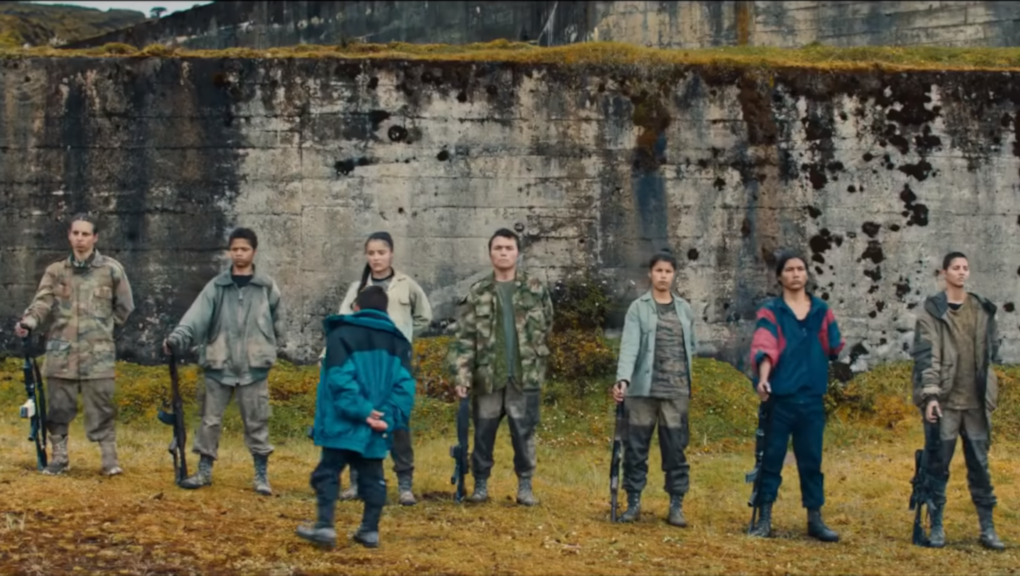In its brimming selection of entries, the Berlinale’s Panorama section deftly packs in some of the most universally accessible and enjoyable films of the festival. Here, you can find some rare genre gems among the usual slower festival fare, including thrillers, road movies and the like.
Panorama entries often try new things within established motifs and conventions, but just as often they can also completely break the mold and land at something entirely unique.
It’s only fitting that this section also includes the coveted Berlinale Audience Award. Before every Panorama screening, the audience is handed a flyer that they can fill out with their thoughts and a ranking for the film they just watched. By including a prize draw (you can win with every rating card you submit), all attendees are incentivized to participate.
This is also the closest that average viewers at the Berlinale get to influencing the festival’s winners.
Most regulars will attest to the strength of the Panorama section’s films, and cite one or two entries as among their favorites of the entire festival each year. It is the middle ground between the prestigious main Wettbewerb and the more experimental sections like Forum.

Photo: Heiner Uebbing
One special Panorama entry this year was on many fellow Berlinale veterans’ lists of favorites, despite not taking home any of the hardware.
Monos, the South American co-production by Brazilian-born Colombian filmmaker Alejandro Landes, was shot in and practically embodies the inhospitable, wild nature of the mountain, jungle and river landscapes of the continent of South America, and Colombia in particular. The film follows an adolescent militia cell whose assignment to hold a precious Western hostage is threatened, less by outside forces than by their own group dynamic.
In reviews and marketing, Monos is often compared to the likes of Lord of the Flies and Apocalypse Now. It has a rich vein of cinematic history to live up to, with its core idea of untouched wilderness altering and transmogrifying social norms, and human behavior being a constant theme in filmmaking.
Luckily though, Landes and his band of ragtag militia kids are not interested in imitation or tribute sentiments.
The eponymous adolescent militia group hold a European woman hostage for their umbrella political faction, vaguely called “The Organization.” Their trainer and commander, the similarly bluntly called Mensajero (“Messenger” in Spanish) can barely keep their feral group instincts in check. They have taken on personas with appropriately teenage rebellion nicknames for each other: Rambo, Boom Boom, Lobo (“Wolf”), Patagrande (“Big Foot”), Perro (“Dog”), Pitufo (“Smurf”), Sueca (“Swede”), and Leidi.
They all band together under the name of camaraderie, more than any political goals or militaristic duties. However, Mensajero’s drills and policies seem to account for this as well.
Allowing two kids to start a physical relationship and giving them the freedom to do as they please in his absence, he seems to encourage not just inappropriate behavior for minors, but also to foster outright brutality and violence as a fundamental principle of life.
Inspiration for Mensajero’s part and the guerrilla aspects of the story in general have come from the actor himself, Wilson Salazar. He’s a former actual child soldier and subsequent trainer of the Revolutionary Armed Forces of Colombia – People’s Army (FARC). His restrained reaction towards the kids’ feral behavior makes their descent into madness all the more believable, and can be construed as a calculated decision on his part.
Their unhinged, visceral rituals, like celebrating a birthday by all beating the birthday boy with a belt and forcing the European hostage to join in, seem completely natural and logical for the peculiar microcosm they cohabitate. The harsh, yet otherworldly beautiful landscape of their world also informs their anarchic and increasingly feverish behavior. The hostage, a female engineer played by established Hollywood actress Julianne Nicholson, combines in her audience surrogate role the uneasiness over her own culpability in her captors’ sociopolitical situation, her terror at the unforeseeable fate, as well as her absolute powerlessness within the scenario.
When she tries to escape, her recapture seems like a foregone conclusion, with the environment practically flinging her back to kids who have started to live and breathe its ruthlessness. Without spoiling any of the subsequent developments, it’s safe to assume the adolescents’ journey does not end too happily.
Landes’s courageous, unflinching direction and the protagonists’ trajectory make this film a tragic one by design.
Monos is a tough and challenging but ultimately rewarding watch, taking its viewers on a journey that feels deeply realistic despite its otherworldly setting and narrative.








